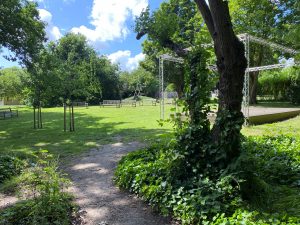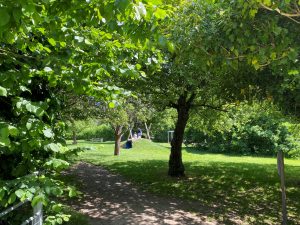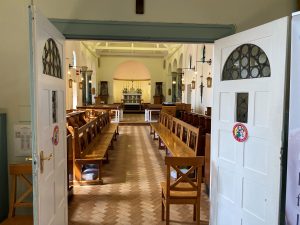Lower IV entries.
Lower IV Alpha pupils, Homare and Hijiri, were two of the entries to this year’s Theology, Philosophy and Religious Essay Competition 2022 organised by the Independent Schools Religious Studies Association. Head of Religious Education, Mrs Corkery, commented, ‘Homare and Hijiri showed great independence, research skills and critical thinking in their composition of these excellent essays exploring the philosophical topic: “True liberty is freedom from the control of others. Do you agree?”’
Homare exploration of the issue was as follows:
‘Have you ever wondered what true freedom is? Freedom of speech… freedom of expression… you might imagine these sorts of things. According to the Oxford Dictionary, freedom is defined as “the power or right to act, speak, or think as one wants without hindrance or restraints.” As implied here, freedom is the indispensable and fundamental human right we value the most. However, in my opinion, we should be aware that hindrance against our true liberty is not always imposed by control of others but also existing in our own mind all the time.
Firstly, everyone would agree that liberty can always be threatened by others, as human history has suggested. For example, Jews were historically the subjects of prejudice for their roles in the Christian Bible and discriminated against. As a result, their liberty was unfairly hindered and restricted in such ways as limited job options, limited access to public transportation, public humiliation, and so forth. The greatest antisemitism caused by the Nazi, Hitler, during World War II is the most notable example in human history. At that time, Jews were under seclusion into poorly facilitated areas, called ghettos. As elaborately portrayed in the famous Anne Frank’s diary, the liberty of these Jews was unjustly as well as systematically taken away by others. However, after the heinous genocides, people learned their mistakes and stopped constraining Jews as it was against human rights. The Jews were granted the freedom of belief and religion and were finally liberated from the hands of others.
On the other hand, even though there are no restrictions imposed by others, we should be aware that our true liberty can be occasionally hindered by our own manipulative feelings such as greed, anger and grief. For instance, a quote from the famous political prisoner Aung San Suu Kyi states, “The only real prison is fear, and the only real freedom is freedom from fear.” The above-mentioned quote explains that if he/she had spent time as a puppet such memory would forever be in their spirits and become a fear, even though they were able to be freed from the manipulation of others in exchange. Therefore, Aung San Suu Kyi thought that freedom is not only about being free from the dictatorship but also about her own feeling of fear. Another famous example of this is the Greek myth, ‘King Midas.’ The myth is about the tragedy of avarice and narrates what happens when true happiness is not recognized. King Midas was a man who wished that everything he touched would turn into gold. However, he had not thought that this wish was not actually a blessing, but a curse. This story depicts that when a person is blinded by their possessive greed, they will lose control of themselves and eventually fall into the abyss of the devil, thus prisoning themselves by their own hands.
In conclusion, I think that true freedom is not always freedom from others’ hands but also from your own mind.’
Hijiri’s essay also examines this issue:
‘I believe that ‘true’ liberty is freedom from not only the control of others but ourselves and here are some reasons why.
Firstly, it is a historical truth that people’s liberty has made large progress through establishing freedom from the control of others. One pre-eminent example is the French Revolution. Similarly to the Russian Revolution, the French Revolution in 1789 eradicated the tyrannical and parasitical monarchism (Louis XVI) who caused the unequal poverty and inhumane maltreatment and oppression of the French people, by the mutiny of Jacobins, the friends of freedom and equality, or in the Russian style, the Bolsheviks (communism-believers). This milestone was a breakthrough in the path of ‘democracy’ instead of autocracy, which equalled ‘liberty’ for the French people. This was because they were able to unfetter from the censorship of the bourgeoisie and aristocrats and thus they could now have election systems, fundamental human rights, the Rule of Law, the separation of powers and, most importantly, freedom of speech. Since then, many other countries followed the change and so there has been less abuse of powers and exclusion of minorities.
However, in my view, I believe that ‘true’ liberty is formed when a person is content with their genuine identity, profoundly freed from their flaws, also mentioned by Albert Einstein; “The true value of a human being is determined primarily by the measure and the sense in which he has attained to liberation from the self”. This is because one simply cannot be happy from hiding his/her flaws and flaunting themselves when they are not as they describe themselves to be. It is much better to admit and acknowledge one’s failings and improve on them. One indispensable solution to achieve this is through ‘Metacognition’. This is when you can objectively and critically think and re-look at yourself and recognize your drawbacks. Then it is left to your mind whether you are comfortable with talking about that mistake that you just metacognised to other people and feel content with it. One example of this is comedians. Comedians epitomise true liberty themselves as they can critically analyse their imperfections and talk about them freely with humour in front of everybody. How much one can talk about their inadequacies in front of people without hesitation and make people smile and laugh is literally how much they are freed from their low self-esteem.
In conclusion, I believe that ‘true’ liberty is freedom from the negative thoughts of the imperfect self, though it is also true that liberty can be freedom from the control of others.’




